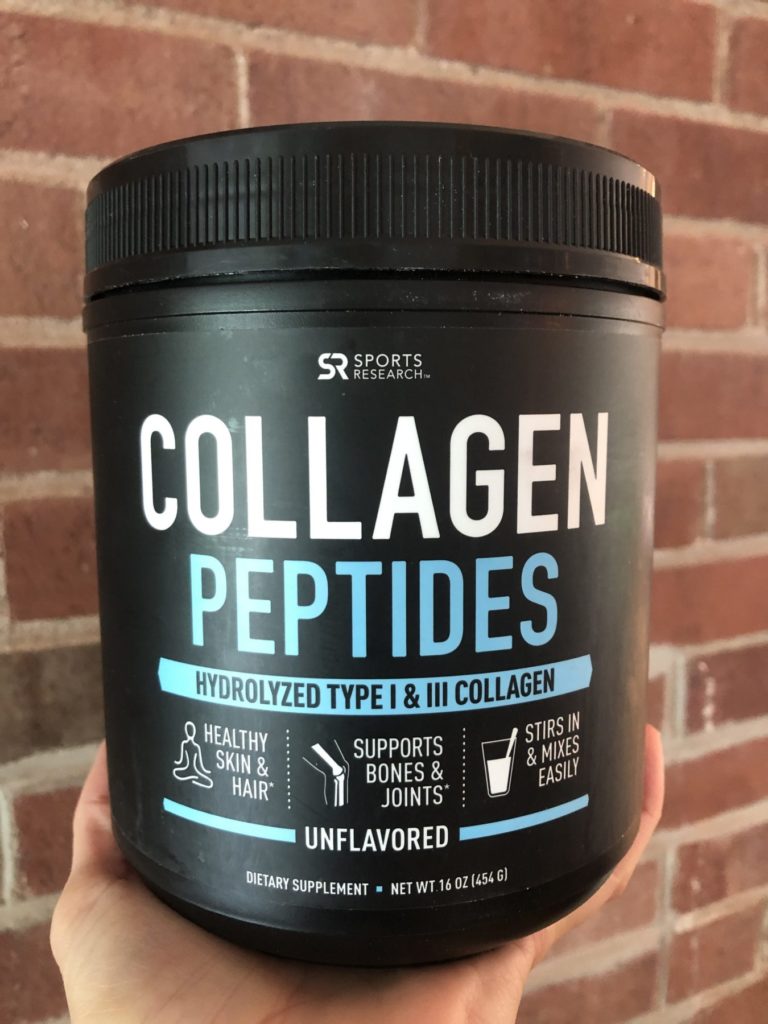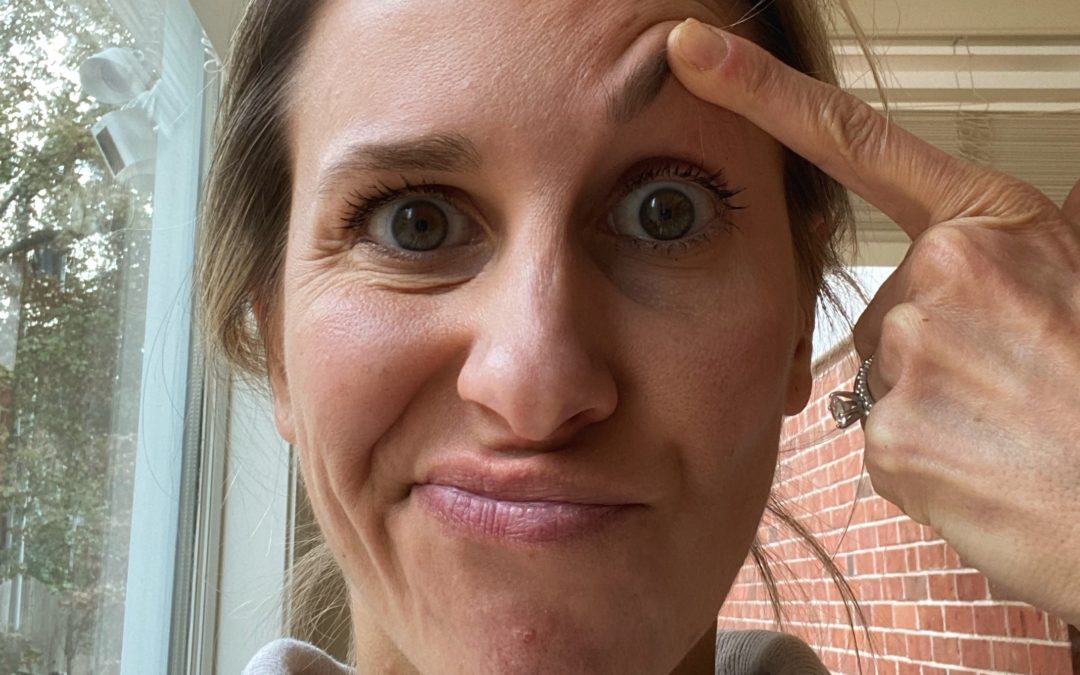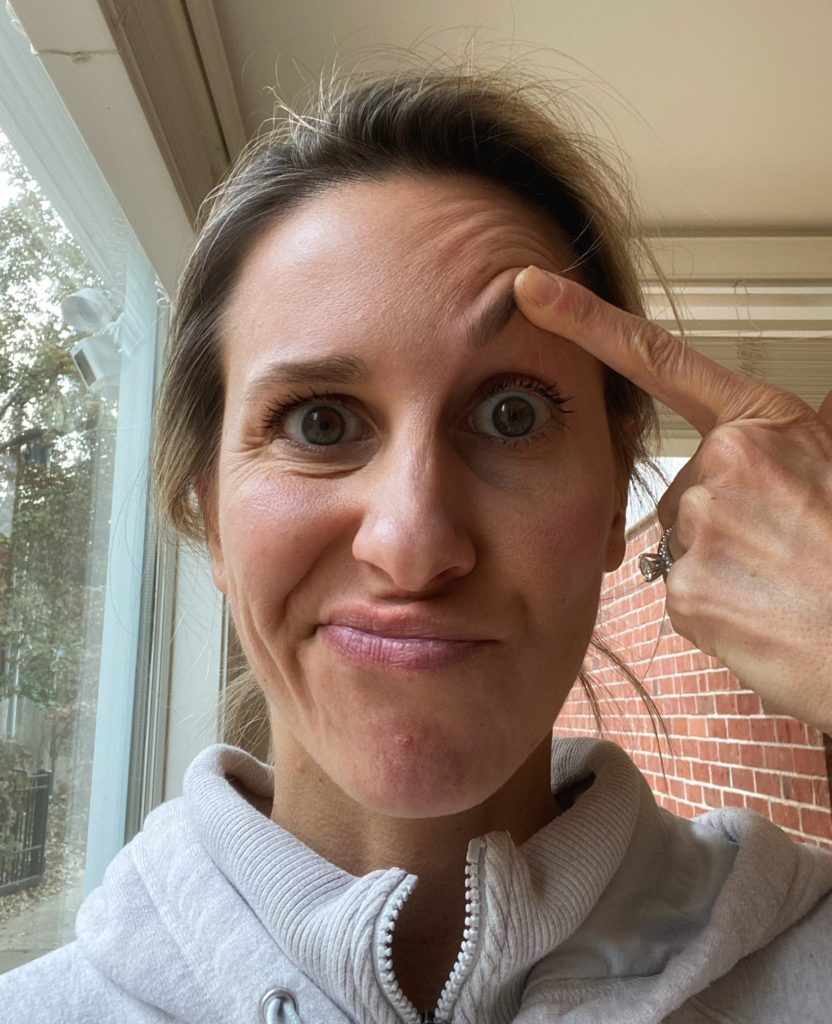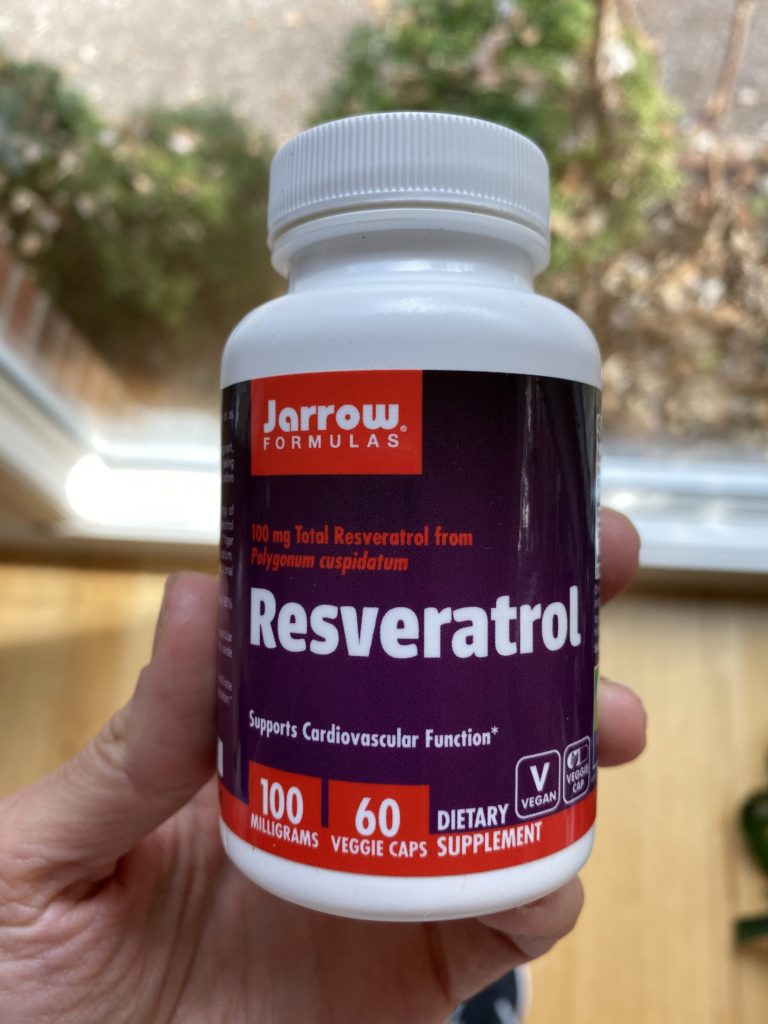Smile lines and crow’s feet mean you’re happy and smile a lot, right? Wrinkles. Do I care about my aging skin? If I said no, I’d be lying. While I do accept and embrace my aging body; it doesn’t mean I don’t aim to optimize its function…and look.
Today is National Botox Day. I’ve done it before. I’ve removed a few lines from my forehead. However, it didn’t come without issues. My husband was against it, and I had one very angry looking raised eyebrow. Does this mean I won’t ever do it again? Probably not. But, what we do on a DAILY basis with our diet/supplements feels like an approach more inline to care for my aging skin. So, here’s the latest research on foods + supplements, such as collagen and resveratrol to age as gracefully as our genetics will allow.
What’s Behind Aging:
Aging is a natural process called “glycation” that occurs when sugar attaches to proteins, forming harmful molecules called advanced glycation end products (ironically, AGEs for short). This process speeds up when the body is in oxidative stress (pollution, UV radiation, poor nutrition and lifestyle). The production of AGEs cause a decline in protein function and a decrease in elasticity of blood vessels, tendons, and skin. When skin elasticity declines, wrinkles form and the skin begins to lose its firmness (1). Hello, 41.
Did you know you can learn about how YOUR skin ages in our Renew GX Healthy Aging Genetic Testing? Here is a snapshot about what your DNA can tell you about how you personally age: *my results below. Learn more about Renew GX here.
How To Minimize Aging (AGEs) with FOOD
- Minimize Added Sugars: Simple sugars like white sugar and especially fructose and high fructose corn syrup increase your rate of glycation by 10 times. Stick to whole grains and other complex carbohydrates, fruits and vegetables.
- Be wary of BBQ. Cooking or caramelizing foods at high temperatures as with barbequing creates AGEs, which when you eat them can do their damage to your collagen and elastin fibers, creating skin glycation. Eat these foods sparingly.
- Eat more blueberries. Blueberries are rich in antioxidant compounds called anthocyanins, which are particularly potent for blocking AGE formation and collagen breakdown. Make them one of your two to three servings of fruits you eat each day.
- Drink green tea. Well known for its cancer-fighting properties, green tea contains a powerful antioxidant compound called epigallocatechin gallate (EGCG) that protects your skin and interferes with the glycation process.
- Get ample vitamin C. Your body uses the antioxidant vitamin C to produce collagen. Eat at least five servings of fruits and vegetables a day to get your fill of this protective micronutrient. Citrus fruits, peppers and strawberries are particularly good sources.
- Snack on almonds. Women who snacked on almonds for 16 weeks compared to a nut-free snack had a decrease in wrinkle size and severity in comparison to nut-free snack eaters. This could be due to the antioxidants and high levels of vitamin E that almonds possess.
Anti-Aging Supplements
Resveratrol
Resveratrol is a naturally occurring compound found in peanuts, pistachios, grapes, red and white wine, blueberries, cranberries, and even cocoa and dark chocolate. Resveratrol’s function in plants is to protect plants from fungal attack and UV radiation. Resrveratrol has anti-inflammatory and antioxidant properties that make it helpful in the prevention of diseases in humans such as cancer and heart disease, beneficial in protecting the brain healing the brain after injury, and protecting the skin from damage.
How does resveratrol benefit my skin?
- Protects against UV radiation and oxidative stress which both lead to aging. A study in 2012 showed that a derivative of resveratrol significantly protected the skin against harmful UV rays and subsequently sunburn (2).
- Has been shown to lessen acne, lighten skin, improve wrinkles, and increase firmness of skin. A study in 2014 found that topical application of resveratrol significantly improved wrinkles and lines, and make skin more firm and elastic over a 12 week period (3).
- Chemoprotective against skin cancer by suppressing the beginning of tumors and their progression. A study was conducted in 2012 that showed significantly reduced melanoma cell activity when participants were taking resveratrol supplements (4).
If you are interested in adding resveratrol into your routine, I would recommend trying Jarrow Formulas Resveratrol 100. (Recommendations are based on my own research; I am not sponsored by Jarrow Formulas or Sports Research).
Collagen
Collagen is the main structural protein in connective tissue in our skin. The word collagen comes from the Greek word “kolla” that means glue; collagen can function like a glue that keeps our skin, muscles, bones, and tendons together. At the age of 25, collagen production slows and eventually slows more during menopause. As collagen decreases, so does the firmness in our skin. This can cause wrinkles and skin looseness.
See our collagen powder review by Sports Research.

Since collagen is a protein, our body cannot absorb it whole. Our body must build it using various amino acids. Foods such as bone broth, meat that is not from an organ, fish, and egg whites are natural sources of collagen in food. However, our body can use the amino acids from any protein rich food to stimulate collagen production (6).
While taking a supplement is not necessary, studies do show that taking a collagen supplement can increase skin hydration, elasticity, and collagen density in your skin (7). Several studies have shown that a collagen supplement can reduce wrinkles and skin dryness as well as other signs of aging. Most oral supplements will be hydrolyzed which means that the long chains are broken down into two or three amino acids which helps for our digestive tract to easily digest it. Supplements also come in the form of collagen peptides which serve as building blocks for our body to make its own collagen, stimulate new collagen growth, and protect existing collagen (8).
So, while botox is still up for debate in my yearly skin care routine, there is no debate around a daily routine of produce, healthy fats and a few supplements. I’ll also keep working on that level of acceptance of smile/worry lines accelerated by my 3 little men.



